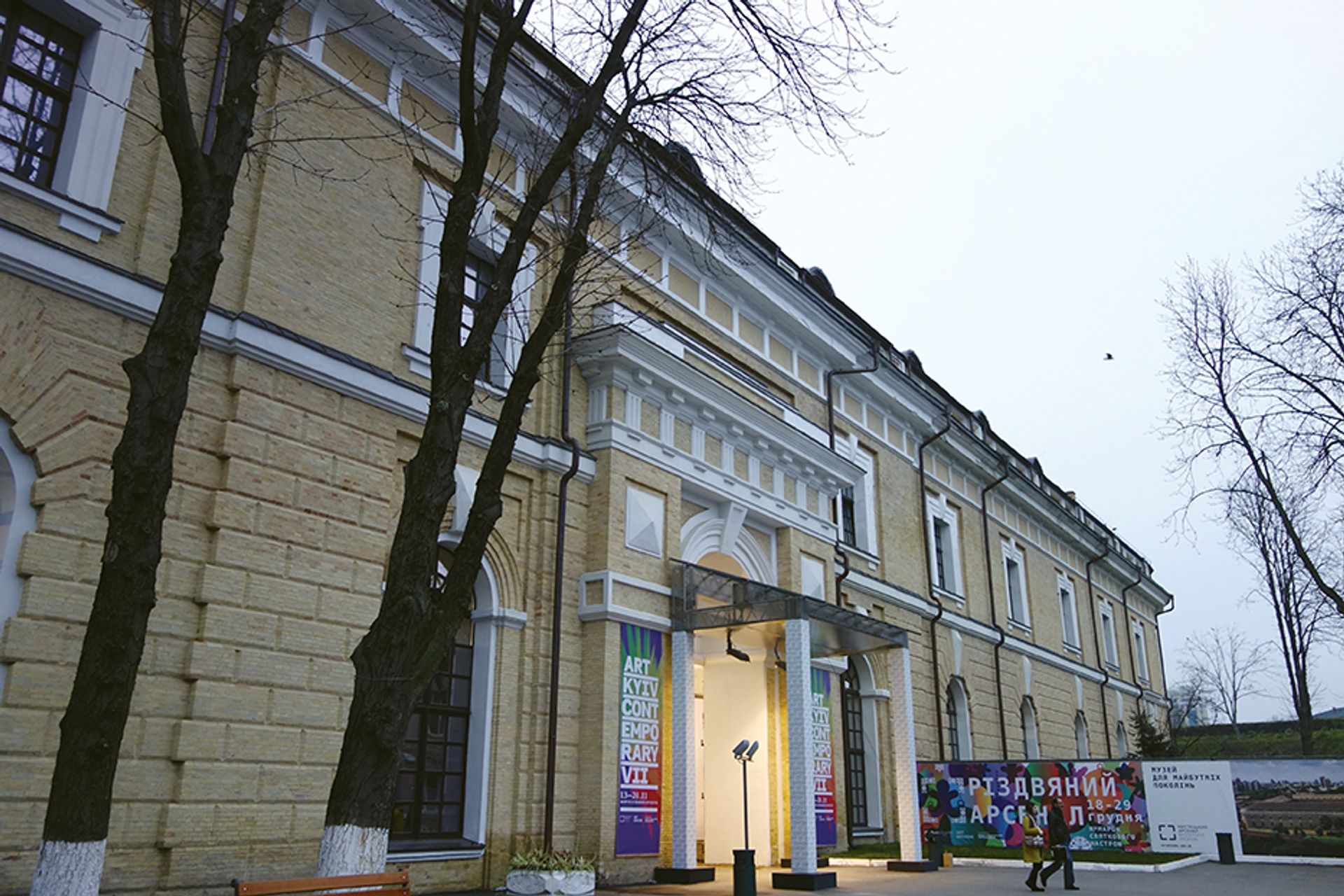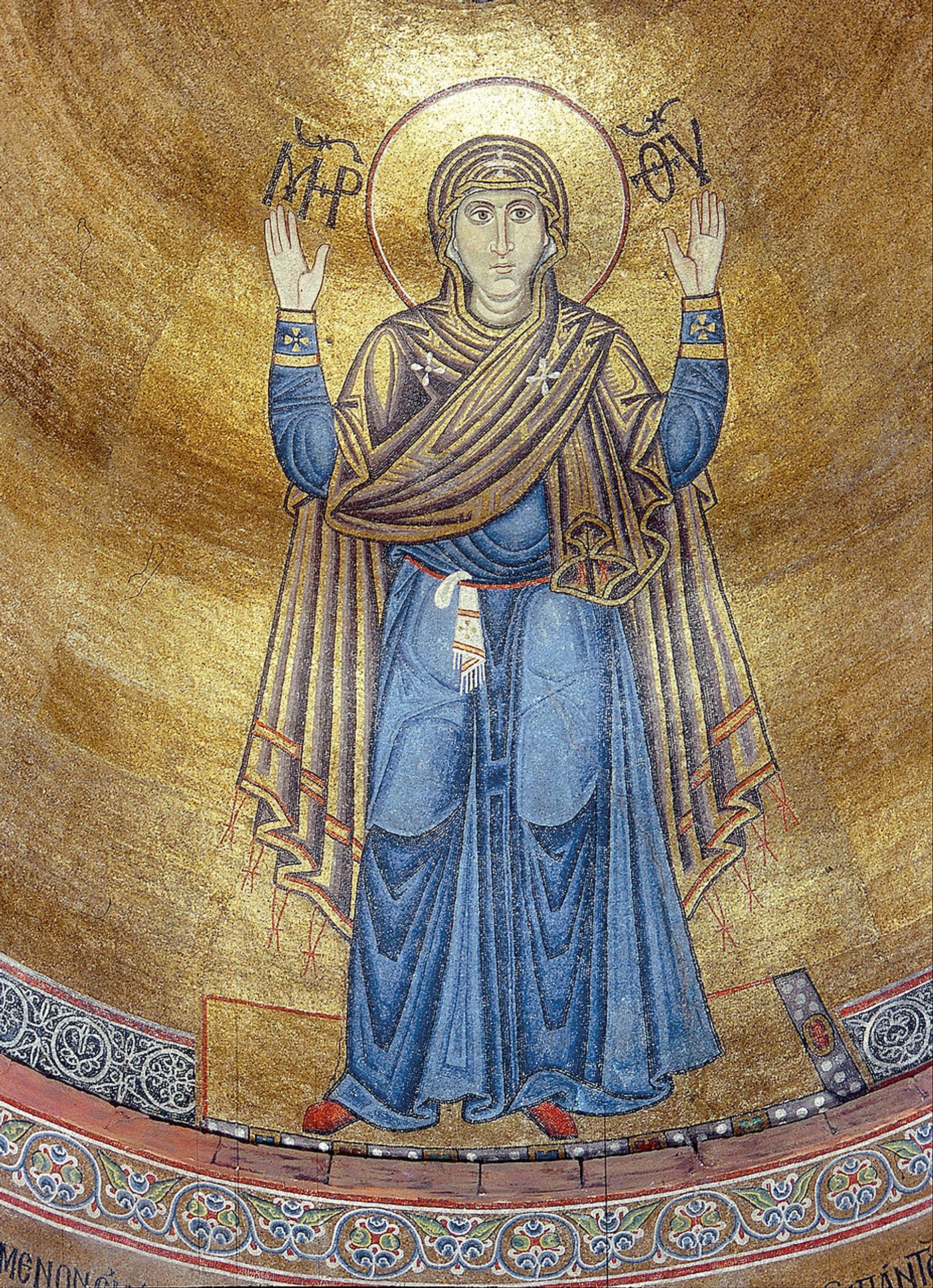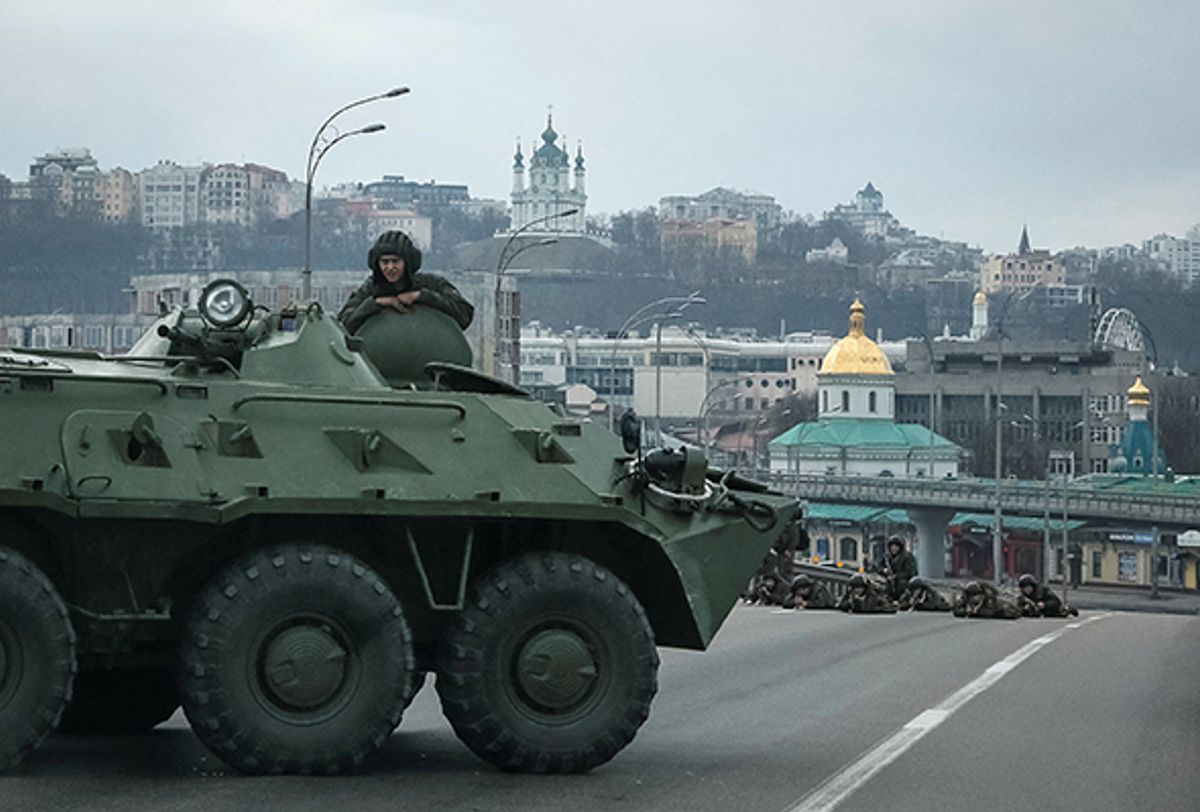Ukraine’s museum workers have come face-to-face with war as Russian forces entered the capital of Kyiv on Friday. Ukraine’s military, putting up a fierce but desperate resistance, urged residents to fight back with Molotov cocktails.
On Thursday, when communications were still possible, Olesia Ostrovska-Liuta, the director general of the Mystetskyi Arsenal National Culture, Arts and Museum Complex described the turn her life had taken within hours of Russian President Vladimir Putin's televised speech on 24 February announcing the Russian invasion.
“My husband and I sent our daughter to a safer place outside of Kyiv," she said, while back at the museum, she "made a plan to send out an appeal letter to our international partners." After a safety plan was put in place, Ostrovska-Liut went home and "proofread the appeal letter", then "there was an air defence warning". So she moved to a bomb shelter; "there is also a shelter in the Arsenal,” she added.

The Mystetskyi Arsenal National Art and Culture Museum Complex in Kyiv © Gateras
Just the day before she had been planning a Zoom presentation for an exhibition catalog about the role of Belarusian contemporary art in fighting oppression. Museum staff, meanwhile, were securing the collection from impending war, including works by Kazimir Malevich and Alexander Bogomazov, who were born in Ukraine.
In its appeal, Arsenal said, “with these horrid and disgusting actions against Ukraine,” Russia is waging war both “against the very existence of the Ukrainian state” and “against all democratic states—the whole civilized world.” It warned: “Today's invasion has the potential of becoming bigger and even deadlier than anything we have seen since the Second World War.” Arsenal asked the international community to “publicly share any successful stories of cooperation with Ukraine” in the cultural sphere and to display the colours of the Ukrainian flag in “artistic and symbolic actions” as a sign of solidarity.
The War Childhood Museum in Sarajevo, which opened an office in Kyiv in 2020, projected the colours onto its facade with the words: “Solidarity with the People of Ukraine.”
In Odesa, a Black Sea port where Russian troops reportedly landed, “museum staff did their best to protect the collection while risking their lives,” Oleksandra Kovalchuk, the acting director of the Odesa Fine Arts Museum, told The Art Newspaper via Facebook.
“Ukraine is fighting,” she wrote. “I hope for the best. My family is safe now. But who knows for how long. They are not going to stop,” she said of the Russian forces. Neither Ostrovska nor Kovalchuk posted any updates on Friday.
Arsenal is located in the heart of Kyiv, in a historic building near the Kyiv-Pechersk Lavra, a Unesco World Heritage site. Unesco said in a statement on Thursday that it was “deeply concerned about the ongoing military operations and the escalation of violence in Ukraine”, and called for respect for “the 1954 Hague Convention for the Protection of Cultural Property in the Event of Armed Conflict and its two Protocols (1954 and 1999), to ensure the prevention of damage to cultural heritage.”
Poland’s Auschwitz-Birkenau Memorial also issued a statement condemning Russian aggression against Ukraine: “This act of barbarity will be judged by history, and its perpetrators, it is to be hoped, also by the International Court of Justice.”
The former Soviet political Natan Sharansky, the chairman of the supervisory board of the Babyn Yar Holocaust Memorial Center on the site of the 1941 Nazi massacre in Kyiv, said in a video statement that the project is possible “only because there is an independent, strong, free, democratic Ukraine, and because of the Ukrainian people.”
Russian cultural figures showed solidarity with Ukraine by posting black squares and “no to war” on their social media pages. Among them were AES+F, the video art collective, and Anton Belov, the director of the Garage Museum of Contemporary Art, which is founded by Dasha Zhukova and Roman Abramovich, the Russian oligarch who could now face severe sanctions. “Horror, shame and injustice!”, Belov posted above the black square on his Facebook page. Others attended anti-war protests on Thursday that resulted in hundreds of arrests in Moscow and St Petersburg.
Earlier on Facebook, Volodymyr Kadygrob, a Kyiv-based contemporary art promoter, had called out Belov and other Russian contemporary culture leaders for failing to speak out. Along with many in Ukraine and Russia, Kadygrob has changed his Facebook profile photo to a historic mosaic from the St Sophia Cathedral in Kyiv depicting the Virgin Mary with her arms raised in prayer.

The mosaic depicting the Virgin Mary from the St Sophia Cathedral in Kyiv
In a televised address on 23 February, Ukrainian President Volodymyr Zelensky invoked culture in a speech also addressing the citizens of Russia. “You are told that we hate Russian culture,” Zelensky said. “How can you hate culture? Any culture? Neighbors always enrich each other culturally, but that does not make them one entity. It does not subsume us in you. We are different, but that is not grounds to be enemies. We want to determine and build our own history, peacefully, calmly and honestly.”


